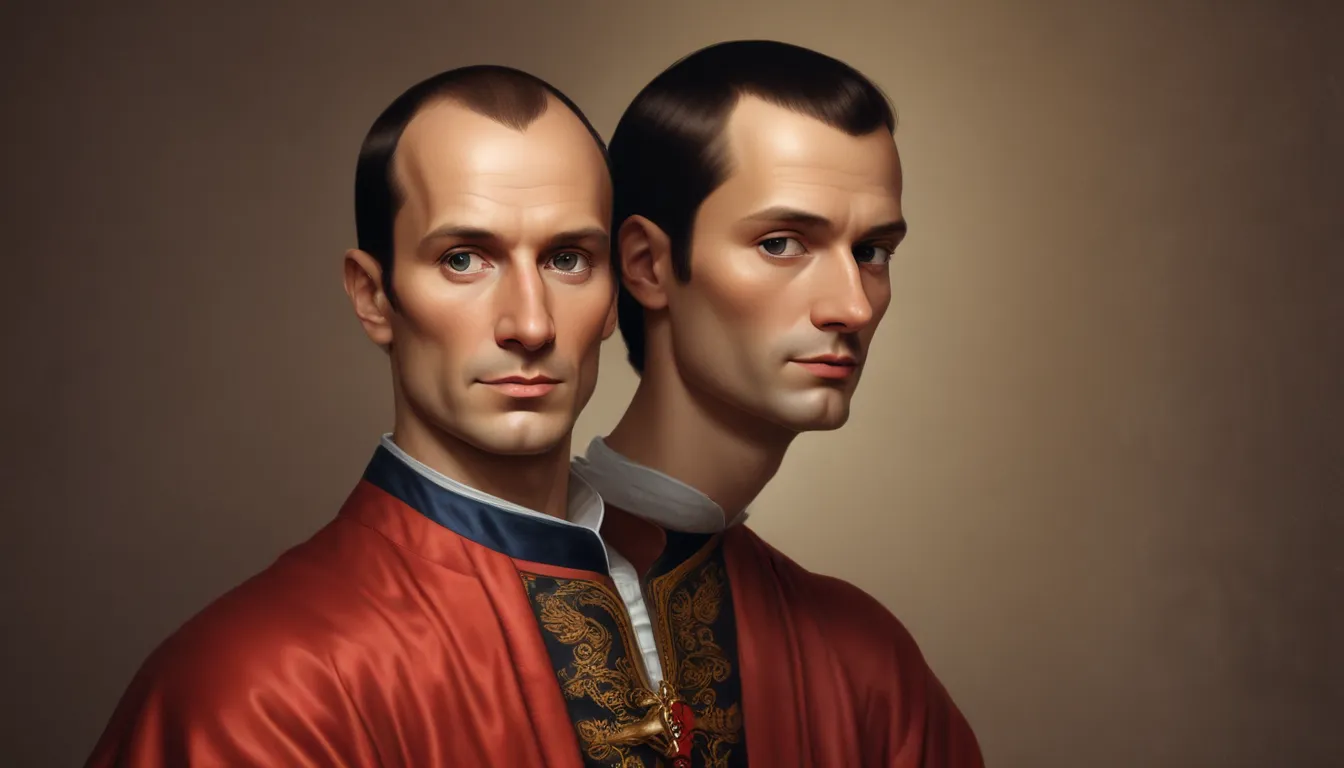The images in our articles may not match the content exactly. They are used to grab your attention, not to show the exact details in the text. The images complement the text but do not replace it.
Niccolò Machiavelli, a name often associated with cunning, deception, and political manipulation, remains a fascinating figure in history. Known for his influential book “The Prince,” Machiavelli’s ideas have sparked both admiration and controversy for centuries. In this article, we will delve into the life and works of Niccolò Machiavelli to uncover 16 intriguing facts that shed light on the man behind the notorious reputation. From his role as a diplomat and political thinker to his personal beliefs and experiences, we will explore the complexities of Machiavelli’s character and the lasting impact he has had on political theory. So, join us on this journey to discover the lesser-known aspects of one of history’s most enigmatic figures. Whether you love him or hate him, there’s no denying that Niccolò Machiavelli’s ideas continue to shape our understanding of power and governance.
Key Takeaways:
- Niccolò Machiavelli was an influential Italian philosopher who believed that rulers should prioritize achieving their goals, even if it means resorting to unethical means to attain them.
- Machiavelli’s ideas challenged traditional views of political power and continue to influence various fields, sparking ongoing debates about the nature of politics and governance.
Niccolò Machiavelli: The Father of Modern Political Theory
Niccolò Machiavelli, commonly known as the father of modern political theory, was born in Florence, Italy during the Renaissance period. Best known for his book “The Prince,” in which he explores the art of governance and provides advice to rulers, Machiavelli’s influence in the realm of political thought is undeniable.
The Magnum Opus: “The Prince”
Published in 1532, “The Prince” stands as Machiavelli’s most famous work. This political treatise offers practical advice on how rulers can gain and maintain power, cementing its status as one of the most influential books on political science.
The Notorious Reputation
Machiavelli’s name has become synonymous with cunning and deceit, reflecting his belief that rulers should sometimes employ ruthless tactics to achieve their goals. While controversial, this aspect of his philosophy has sparked discussions on the morality of political actions.
The Motivation Behind “The Prince”
Exiled from Florence, Machiavelli wrote “The Prince” as a job application in hopes of impressing the ruling Medici family and securing a government position. This strategic move showcases Machiavelli’s skill in using his writings to navigate political landscapes.
Challenging Tradition: Machiavelli’s Views on Power
Unlike his contemporaries, Machiavelli believed that the effectiveness of a ruler’s actions should be judged by their outcomes rather than traditional ethical or religious standards. This shift in perspective challenged prevailing notions of political power.
The Controversial Maxim: The Ends Justify the Means
One of Machiavelli’s most controversial ideas is that rulers should prioritize achieving their goals, even if it means resorting to unethical means to attain them. This utilitarian approach to governance has both intrigued and repelled thinkers throughout history.
The Duality of Virtue and Cunning
Machiavelli argued that the ideal ruler should possess both cunning and virtue, using intelligence and a moral compass to navigate the complexities of governance. This blend of traits highlights the nuanced understanding Machiavelli had of leadership.
Influencing the Greats: Machiavelli’s Impact on History
Leaders such as Napoleon Bonaparte, Otto von Bismarck, and Richard Nixon have drawn inspiration from Machiavelli’s theories on power, showcasing the enduring influence of his ideas on political figures throughout history.
The Role of the Military
Machiavelli advocated for a strong military, believing that a ruler should maintain a powerful military force to protect their state and expand its influence. This emphasis on military strength reflects his pragmatic approach to governance.
Diplomat Extraordinaire: Machiavelli’s Diplomatic Service
Appointed as a diplomat for the Republic of Florence, Machiavelli represented Florence in various diplomatic missions across Europe, showcasing his skill in navigating international relations.
Trials and Tribulations: Imprisonment and Torture
Accused of conspiracy, Machiavelli endured imprisonment and torture before eventually being released. This challenging period in his life reflects the political volatility of his time and the risks associated with his diplomatic career.
Beyond “The Prince”: Machiavelli’s Other Works
Aside from “The Prince,” Machiavelli authored influential works such as “Discourses on Livy” and “The Art of War,” exploring topics ranging from republican government to military strategy. This breadth of work showcases his versatility as a thinker.
The Controversy Surrounding Machiavelli’s Ideas
Initially met with skepticism and criticism, Machiavelli’s works challenged conventional views on politics and morality. His unorthodox perspectives sparked debates and interpretations that continue to resonate in academic circles today.
Fear or Love: Machiavelli’s Perspective on Leadership
Machiavelli famously stated, “It is better to be feared than loved if you cannot be both,” emphasizing the pragmatic nature of leadership in his book “The Prince.” This dichotomy continues to intrigue scholars and leaders alike.
A Lasting Legacy: Machiavelli’s Influence Today
Machiavelli’s impact extends beyond political philosophy, influencing fields such as psychology, business, and military strategy. His ideas continue to be studied and debated, demonstrating the enduring relevance of his thoughts in the modern world.
In Conclusion
Niccolò Machiavelli emerges as a complex and influential figure, known for his political writings and philosophical insights. Through exploring the 16 intriguing facts surrounding Machiavelli, we gain a deeper understanding of his life and contributions. Whether his ideas are admired or criticized, Machiavelli’s legacy in shaping political thought remains undeniable. As we reflect on his insights into power, authority, and human nature, we are reminded of the lasting impact of his work on the realm of governance and leadership. Machiavelli’s teachings continue to provoke thought and discussion, serving as a testament to his enduring influence.
FAQs
-
Who was Niccolò Machiavelli?
Niccolò Machiavelli was an Italian philosopher, writer, and diplomat known for his contributions to political theory during the Renaissance period. -
What are some of Machiavelli’s famous works?
In addition to “The Prince,” Machiavelli wrote “Discourses on Livy” and “The Art of War,” exploring various aspects of political philosophy and military strategy. -
Was Machiavelli as ruthless as his writings suggest?
While Machiavelli’s writings emphasize pragmatic political strategies, his personal life did not necessarily align with the Machiavellian principles he advocated. -
How did Machiavelli influence political thought?
Machiavelli’s ideas challenged traditional notions of ethics and morality in politics, emphasizing the importance of power and stability in governance. -
What is Machiavellianism?
Machiavellianism refers to a strategic and cunning approach to obtaining and maintaining power, influenced by Machiavelli’s writings on political theory.
As we conclude our exploration of Niccolò Machiavelli’s life and ideas, we invite you to continue investigating the complexities of this Renaissance philosopher. His enduring relevance in the realm of political thought serves as a testament to the timeless nature of his insights. Join us in further unraveling the enigma of Niccolò Machiavelli and his profound impact on the world of governance.






